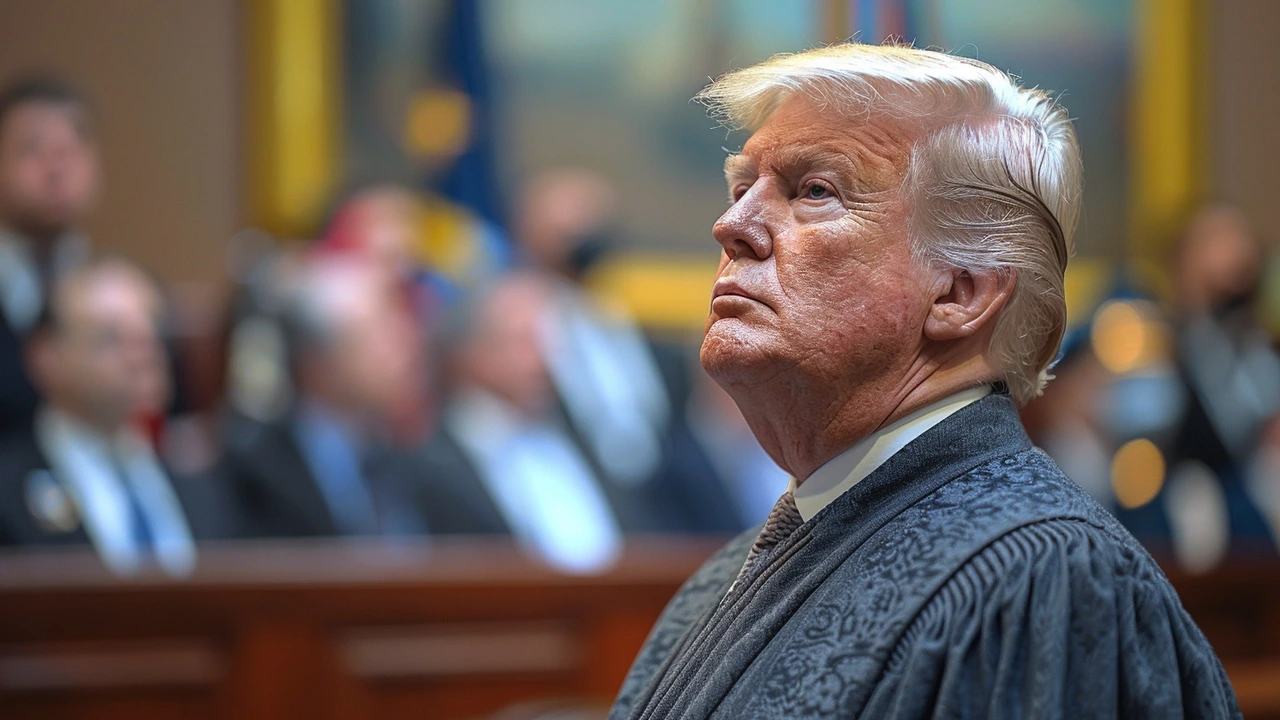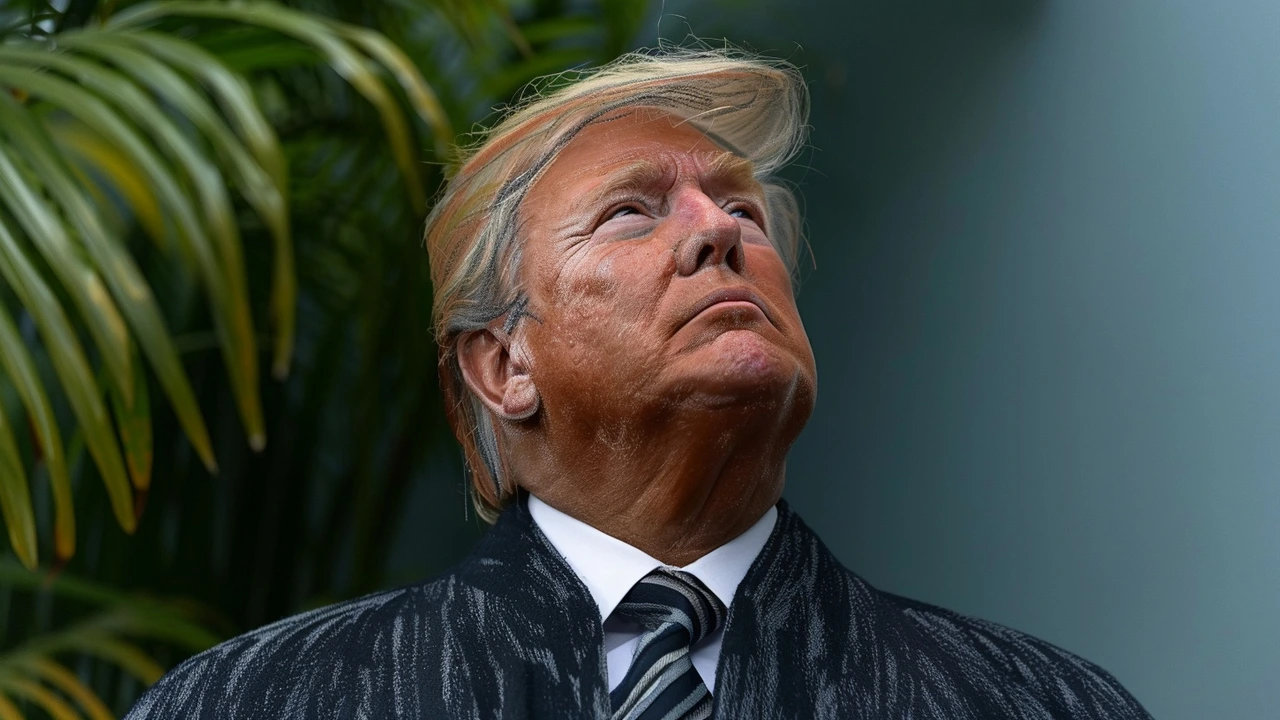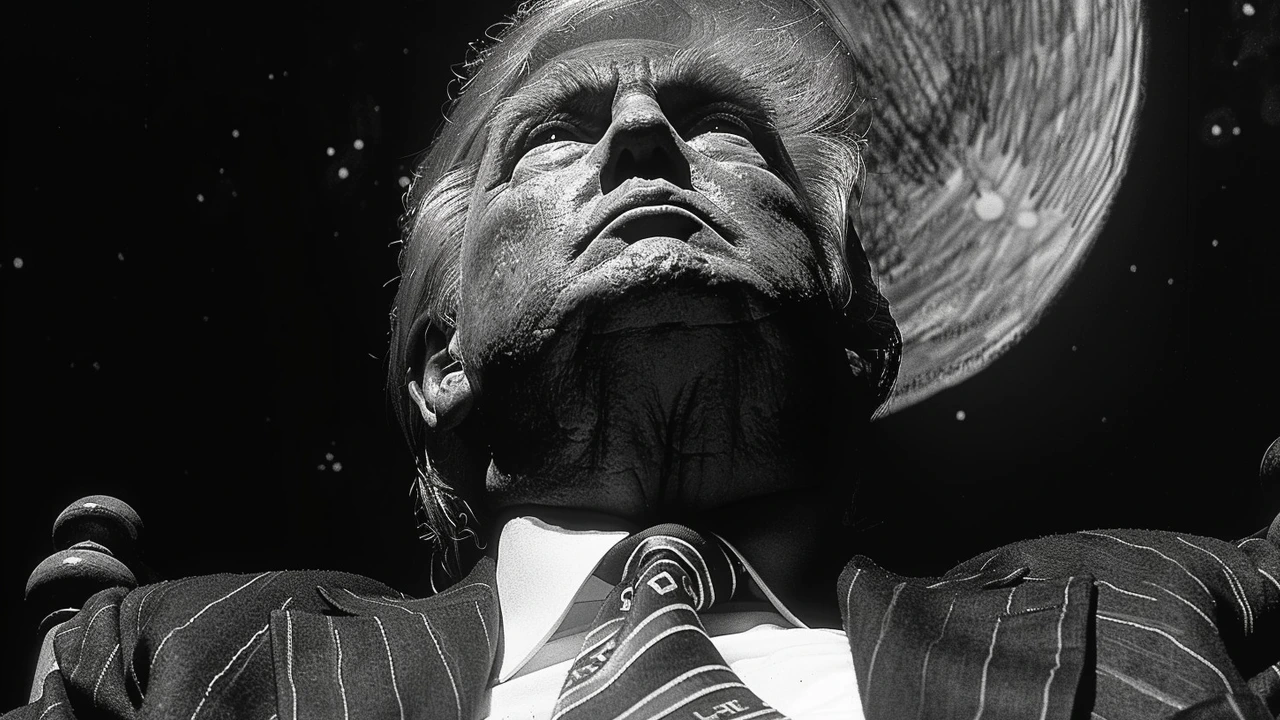The Manhattan Court's Decision
In a landmark decision that has sent shockwaves through the political landscape, former President Donald Trump was found guilty on all 34 counts of business record falsification. The verdict, delivered in a Manhattan courtroom, concludes a high-profile trial that centered around allegations of a complex scheme to hide payments intended to silence an adult film actress.
The case revolved around accusations that Trump had orchestrated a plan to compensate his former attorney, Michael Cohen, for a $130,000 payment made to Stormy Daniels, an adult film star. This reimbursement was allegedly disguised as legal expenses, an act which prosecutors argued constituted a deliberate attempt to falsify business records.
The Prosecution's Evidence
The prosecution's case was built on substantial evidence, demonstrating that Trump had deliberately deceived financial agents and the public. Over weeks of testimony, jurors were presented with records, documents, and witness accounts that painted a clear picture of the scheme. The backbone of the prosecution's argument was the testimony of Cohen, who had previously admitted to facilitating the payment to Daniels on Trump's behalf.
During his testimony, Cohen detailed how the reimbursement was handled, emphasizing the steps taken to make it appear as legal fees. He provided insights into the conversations and actions orchestrated by Trump, which the prosecution used to illustrate a pattern of deceit and fraudulent behavior.
Trump's Defense Strategy
Facing the weight of these allegations, Trump's legal team, led by Todd Blanche and Emil Bove, mounted a vehement defense. They argued that Cohen's testimony was unreliable, pointing out that Cohen had a history of dishonesty and had previously been convicted of multiple felonies. The defense claimed that Cohen's motives were rooted in a desire for revenge and personal gain.
Trump himself pleaded not guilty to all charges, maintaining a firm stance of innocence. Throughout the proceedings, he denied any involvement with Stormy Daniels and refuted the claims of falsified records. His lawyers further argued that the payments were straightforward legal expenses, dismissing the notion of any wrongdoing.

The Jury's Deliberation and Verdict
The jury's decision came after extensive deliberation, where they meticulously reviewed the evidence and testimonies presented during the trial. The complexity of the case and the high-profile nature of the defendant added to the gravity of their task. Ultimately, they reached a unanimous verdict, finding Trump guilty on all counts.
The foreman of the jury delivered the verdict with a solemn tone, acknowledging the significance of their decision. Cameras captured Trump's steely expression as the verdict was read, with little visible reaction to the news. The courtroom was filled with tension, reflecting the weight of the moment.
Reactions and Implications
The aftermath of the verdict saw a mix of reactions from various quarters. Trump's supporters remain steadfast in their belief that he is being unfairly targeted, with many calling the trial a politically motivated witch hunt. On the other hand, his critics view the verdict as a just outcome, reinforcing the principle that no one is above the law, regardless of their status or position.
The ruling will undoubtedly have far-reaching implications, both for Trump and the broader political landscape. Speculation is rife about how this will affect his future, particularly any aspirations for another presidential run. Legal experts anticipate that Trump's team will file an appeal, seeking to overturn the ruling.
Stormy Daniels and Michael Cohen: Central Figures
The central figures in this trial, Stormy Daniels and Michael Cohen, have both seen their profiles rise amidst the controversy. Daniels, who played a pivotal role by stepping forward with her allegations, has expressed a mix of relief and vindication following the verdict. Her claims of an affair with Trump, prior to his 2016 presidential campaign, had already stirred considerable media attention, and the trial only amplified it.
Cohen, once a loyal confidante of Trump, became a key witness for the prosecution. His detailed testimony brought to light the inner workings of the scheme, his role in it, and the eventual fallout from his actions. As someone who once enjoyed the former president's trust, his pivot to a critical witness highlights the complexities of personal and professional relationships within Trump's inner circle.

The Road Ahead
With the verdict now delivered, attention turns to the next steps in the legal process. The judge has scheduled a sentencing hearing, the date of which will be keenly watched by both supporters and detractors of Trump. This impending sentencing has sparked discussions on the potential penalties that he could face, given the severity of the charges.
Legal analysts suggest that the sentencing could set a significant precedent, serving as a cautionary tale for other high-profile figures who might consider engaging in similar fraudulent activities. The case has already underscored the intricate nature of legal expenses and the importance of transparency in business dealings.
A Reflection on Accountability
The trial of Donald Trump serves as a potent reminder of the principles of accountability and justice. It stands as a testament to the idea that regardless of one's power, position, or influence, the legal system retains the authority to uphold the law. This case might also prompt a reevaluation of legal practices in political campaigns, campaign finance, and broader business practices.
The conclusion of this case might mark the end of one chapter, but it also opens discussions on the broader implications for political, legal, and public domains. As with many high-stakes trials, the ripples of this verdict will be felt for years to come, influencing public opinion, legal practices, and the political landscape.
Concluding Thoughts
In summary, the conviction of Donald Trump on all 34 counts of business record falsification represents a significant moment in legal and political history. The trial has brought to light the complexities of legal maneuvers, the intricate relationships within Trump's inner circle, and the unwavering pursuit of accountability by the legal system. As we await the sentencing, the verdict remains a poignant reminder of the enduring principles of justice and the rule of law.


Kelly Ellzey
June 1, 2024 AT 14:43This is such a huge moment in American history-no president has ever been convicted of a crime before, and yet here we are. I don’t care what side you’re on, the evidence was laid out clearly, and the jury didn’t blink. It’s not about politics-it’s about accountability. We’re teaching our kids that the rules apply to everyone, even the loudest voices in the room. That’s worth something.
maggie barnes
June 2, 2024 AT 00:50LMAO. So now we're calling it 'fraud' because a guy paid his lawyer to cover up a blowjob? That's the best you got? This whole thing is a circus. The system is broken, and you people are just cheering while it burns. Wake up. This is witch hunt season, and you're all the witches.
mahak bansal
June 3, 2024 AT 18:12The legal process unfolded as designed. Evidence was presented. Witnesses testified. A jury weighed it all. The outcome reflects the facts, not the headlines. This case shows that institutions can still function, even under extreme pressure. That’s not weakness-it’s strength.
Lewis Hardy
June 5, 2024 AT 00:13I know people are angry, but I just feel sad. This isn’t about winning or losing-it’s about what happens when power gets detached from truth. Trump’s not a villain, he’s a symptom. We built a system where lying becomes a business model, and now we’re surprised when it collapses on someone’s head. We all helped make this.
Prakash.s Peter
June 5, 2024 AT 23:16Let me be clear: this verdict is not a legal triumph-it is a political theater of the lowest order. The prosecution relied on a convicted felon with a vendetta, and the jury, influenced by media narratives, failed to apply the burden of proof with rigor. This is not justice-it is mob rule dressed in robes.
ria ariyani
June 7, 2024 AT 02:08OMG I CAN’T BELIEVE THIS IS HAPPENING. I JUST SPENT 3 HOURS ON TIKTOK WATCHING PEOPLE CRYING AND CLAPPING IN THE COURTROOM. SOMEONE JUST POSTED A VIDEO OF TRUMP’S FACE WHEN THEY SAID ‘GUILTY’ AND I SCREAMED. I’M SO PROUD OF AMERICA RIGHT NOW. #TRUMPISFINISHED #JUSTICEWON
Emily Nguyen
June 8, 2024 AT 17:30This is exactly what happens when you weaponize campaign finance laws against a political opponent. The DOJ didn’t care about the law-they cared about optics. Michael Cohen’s testimony is garbage. He’s a liar who flipped because he got a reduced sentence. This verdict is a precedent that will be abused for decades. Don’t celebrate. Be afraid.
Ruben Figueroa
June 8, 2024 AT 20:57So now we’re convicting guys for paying someone to keep quiet? 😂 Next up: charging every CEO who signs an NDA. And the judge? He’s probably got a bumper sticker that says ‘I ❤️ CNN.’ 🤡 This isn’t justice-it’s a clown car with a gavel. #Trump2024
Gabriel Clark
June 9, 2024 AT 15:34From a global perspective, this case is fascinating. In many democracies, a sitting or former leader being held accountable in court is seen as a sign of institutional maturity. The fact that this is so divisive here says more about our cultural polarization than about the law itself. I hope the sentencing brings some clarity-not more noise.
Elizabeth Price
June 10, 2024 AT 10:19Wait, so you’re saying a guy got convicted because he paid his lawyer to cover up a payment that was technically legal? That’s not fraud-that’s accounting. And you’re calling it a felony? The system is broken. They didn’t prove intent. They didn’t prove harm. They proved he’s rich and unpopular. That’s not justice. That’s vengeance.